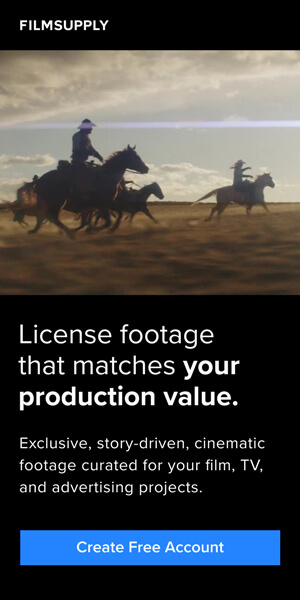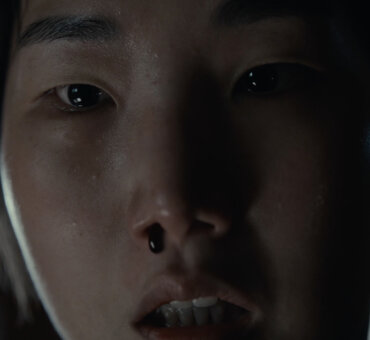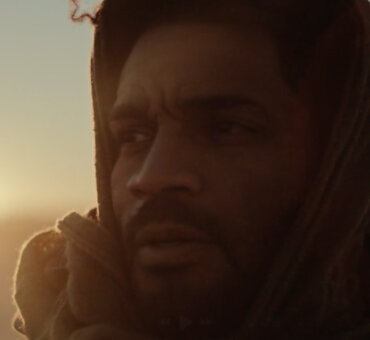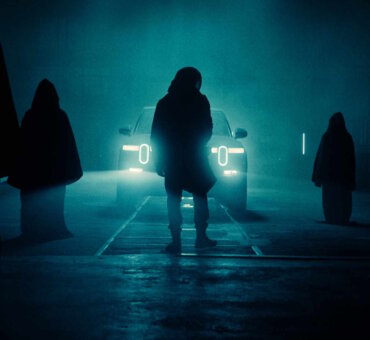At first glance, poetry can seem a little sparse — no typical story structure or character development. It can be difficult to even find a complete sentence, much less a complete narrative. But, as you dig deeper, you can see the intentionality in every aspect: the pace, arrangement, symbolism, etc. The personality of the writer comes into view and you’re drawn into the art and science, the flow. We think our latest Filmsupply Films has the exact same effect and for good reason. It’s exactly how director Andrew De Zen intended it to be seen.
“There’s this thing I got from studying Tarkovsky, the idea of ‘getting your soul across.’ It’s this idea of putting who you are into your project and being as honest as you can possibly be with yourself,” Andrew told us. “I’ve been experimenting with this a lot in my projects, creating these hints and meanings through a closeup, through art, in the way a character reacts, or, say, the inclusion of a specific color.”
Stories We Tell Ourselves is a tale of lost love and broken hearts, or at least that’s what we took away from it. It turns out the story is a personal one for Andrew, and it shows in the emotional, intentional filmmaking. We talked with Andrew about the inspiration for this film, how he “designed” it, and why people understanding its message may not matter all that much. Here’s Andrew.
Did you start in the commercial or narrative side of things?
Andrew de Zen: I ended up getting director representation in Canada while I was still a student in college, actually. That led me into the commercial field pretty quickly. After a few years of that I started getting really frustrated and realized my job was just waiting around for scripts and boards, for some creative to send something to me. I came to this point where I was asking myself, “Why the hell did I get into this in the first place?”
I got a lot of good projects early on and then just ran into a wall and started getting really antsy. I didn’t really know what to do with my time. I think for anyone in the freelance world, there’s this balance of keeping yourself sane while also trying to keep yourself a little bit insane and chaotic to keep that creative spark alive. I think it had a lot to do with maturity at the time, because there’s a lot I admire about the commercial world now, but I just wanted to do my own thing. That’s what got me started making my own films, creating my own stories.
Stories We Tell Ourselves is part of a series, right?
Yeah. It’s actually the third and final film in a series that I’ve been making. These films sort of stemmed from the frustration of making commercials and not giving yourself the time to create on your own. Each one expresses a different type of anxiety — the first one, WE AREN’T STRANGERS, is about being trapped by social media, and my second film, THE WALL, is about questioning why you’re doing what you’re doing.
Was this story personal to you?
It’s definitely the most personal thing I’ve ever made. This time last year I was going through a break up — the first serious relationship that I’d been through. I couldn’t really reconcile some emotions and I knew that I wanted to make something about it and just go all the way in.
At the time I was watching a lot of Hong Kong cinema and some French new wave and those are the biggest sources of inspiration for this piece. I wanted to try and create something that was different, that draws from very specific feelings, memories, and experiences — but all has to do with this uncontrollable emotion.
Was it easier or more difficult to make because it was more personal to you?
I think for filmmakers that are only concerned about the narrative for a film or don’t care as much as about the personal connection it could be more difficult. For people who bring a lot of empathy to their work, I think films like this tend to come out more naturally. At this point, I’ve kind of given up on the idea that I’ll never write myself into a film. Just in the way I make decisions throughout the process of developing a film, parts of myself are going to find themselves in. It’s kind of an extension of myself, so I wouldn’t say it’s any harder or easier.
It was also personal because every film in this series, for me, was an experiment on a technique in filmmaking. The first one was about finding energy in an edit, the second was using wide shots in special ways, and this third film was about designing a film.
Could you explain what ‘designing a film’ means?
There’s this idea with a lot of the stuff that I was watching — and even this series of films — where there’s no plot and no story, and that’s kind of intentional. They are these small pieces that I want to keep small, but also experiment with every element by using color in ways I’d never used color before, or designing a set in a certain way. I’m being very intentional with the through-line of the film and what I’m trying to say with it.
There’s not much dialogue, but you’re using the perspective of the characters, highlighting the mood, and meaning of things. There’s a lot of symbolism that I don’t expect a lot of people to pick up on, but it’s there for me to have that level of intent, to try and enrich it.
What are a few of those intentional things you included?
The room — his bedroom in the film — was designed specifically by my production designer Danielle Sahota, who’s this talented young designer from Toronto. We decided to blow up this location and make it feel like a surrealistic painting to give it texture, to give it mood.
Also, this main character is going through these emotions that he can’t reconcile, and this girl is kind of on him and he can’t shake her off. So, I wanted to give her this particular color and her color in the film is blue. His room is painted this kind of surrealistic light blue, he gets some nail polish on his finger that’s blue, and at the end of the film the whole frame ends up being flooded in blue light. So, those were just a few of the elements we were playing with.
I just wanted to pack my frames with visual things. Not just for the sake of doing it, either, but also for the sake of doing it and making sure it makes sense for the film. Making sure it’s aesthetically pleasing, but also supports what you’re doing.
Why do you think it’s important to have those touches, even if people don’t necessarily notice them?
In filmmaking I think there’s a big difference between consciously realizing something and subconsciously feeling something.
If you know exactly what you’re trying to say, people really don’t have to directly pick up on these things. There’s this thing I got from studying Tarkovsky, the idea of “getting your soul across.” It’s this idea of putting who you are into your project and being as honest as you can possibly be with yourself. I’ve been experimenting with this a lot in my projects, creating these hints and meanings through a closeup, through art, in the way a character reacts, or, say, the inclusion of a specific color.
I think all of these small connections almost form a sort of spider web. It hits someone in the face and they have to try to figure out what it really is.
It seems like this takes a good amount of planning.
That’s probably the thing I’m most proud of with this film, is that it’s a direct reflection of what was in the script. Every line of dialogue, every cut to black, the music choices, everything. We went into it knowing exactly what we wanted to do, to the point where some people didn’t really know what we were doing at certain points. We just had to be, “Don’t worry, it all makes sense. By themselves, it’s not supposed to make sense, but it’ll work with everything else.”
Is it important for an audience to get a particular message you’re trying to send?
Of course, you want people to understand it. But, with this film, being abstract and experimental, it’s just a different form of communication. When you make something like this you’re almost just starting a conversation with the audience, “OK, what did you think?”
In the end, I’m just going to do my own thing, express myself, and explore it in a way that I hope people will relate to. I think it’s a feeling that everyone’s had at one point in their lives — first love and all that stuff. Maybe they haven’t lost it, but the human experience is relatable through all of us. With this film, it was just about me wanting to explore these feelings on my own terms.






